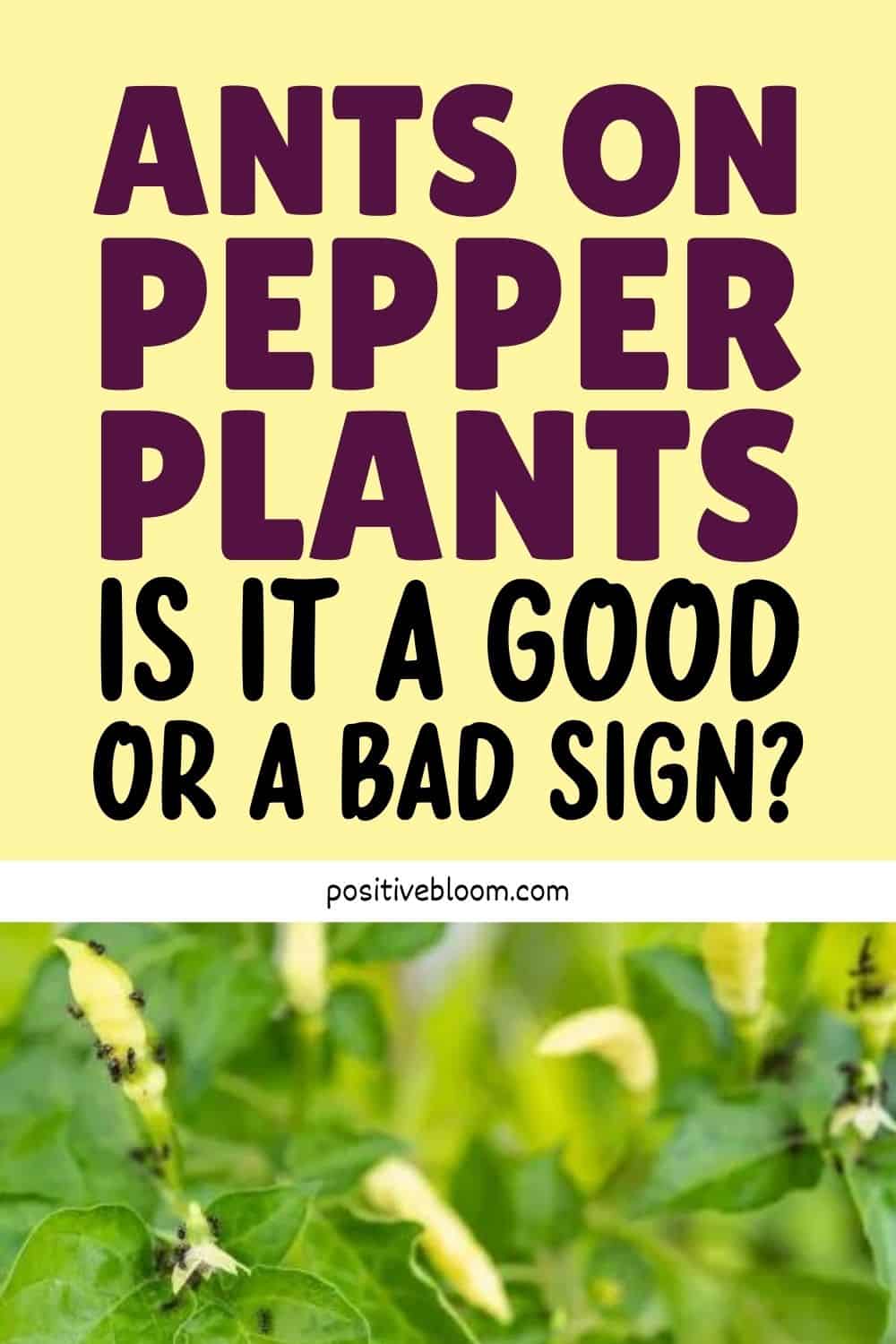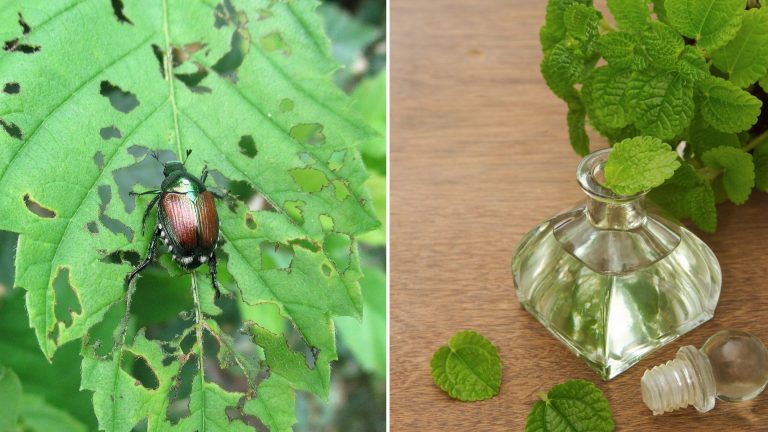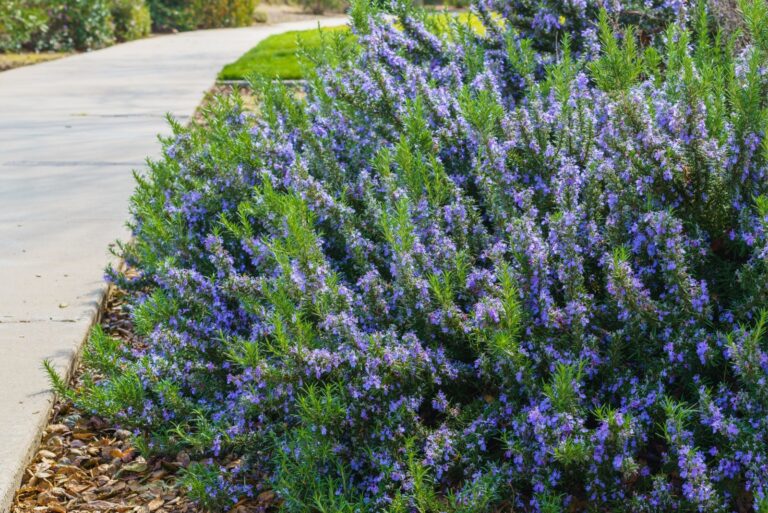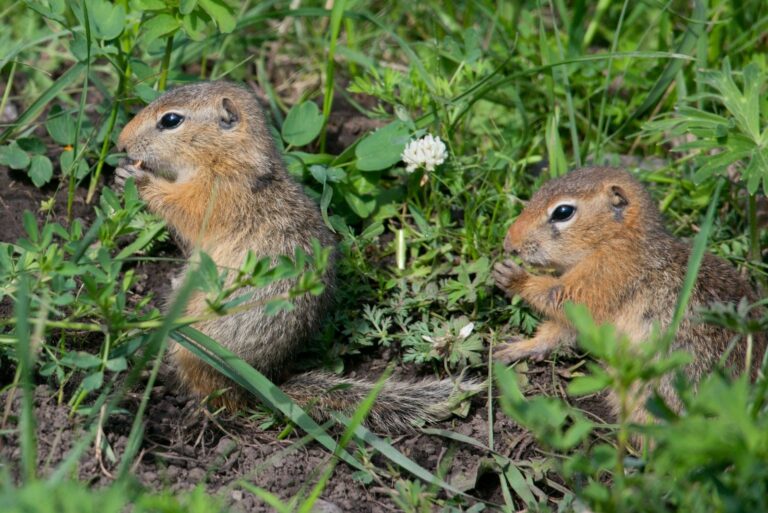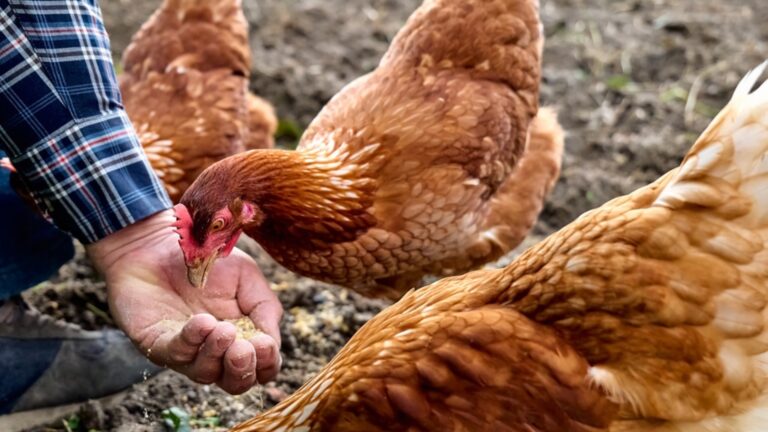Ants On Pepper Plants: Is It A Good Or A Bad Sign?
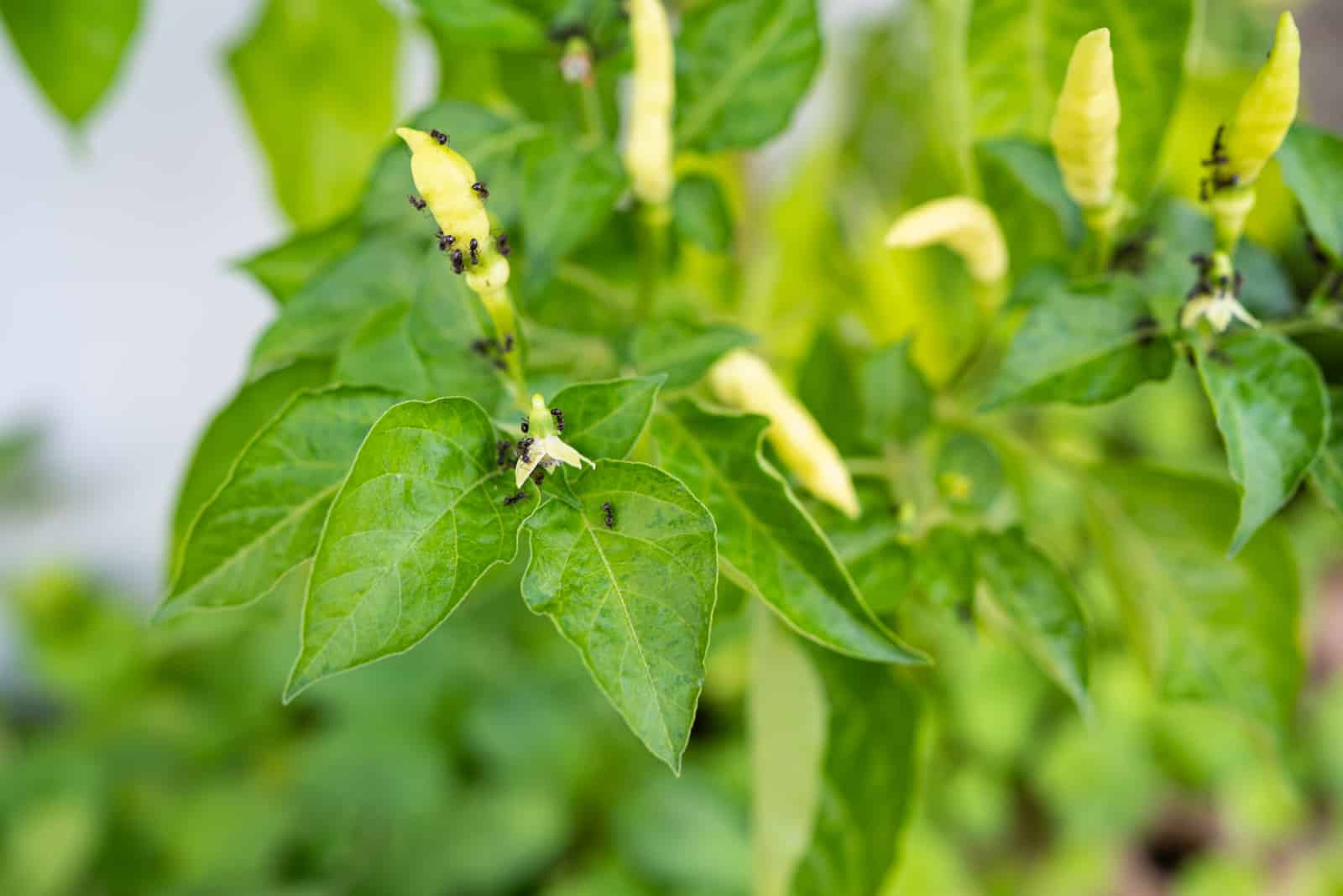
If you have just started your gardening journey and spot ants on your plants, you might be worried.
We often think that anything small and crawling on our plants is a sworn enemy, however, that isn’t always the case.
Let me tell you, ants absolutely love pepper plants . You will spot them easily, especially if your pepper plants have just started blooming.
A few ants are completely normal; I bet that you can spot them on any veggie in your garden. But when there is a colony of ants on your pepper plants , you should start worrying.
Luckily, we are here to provide all of the answers to why a colony of ants on pepper plants is a bad thing, and some tips and tricks to get rid of them.
Ants On Pepper Plants: Why Are They Here?
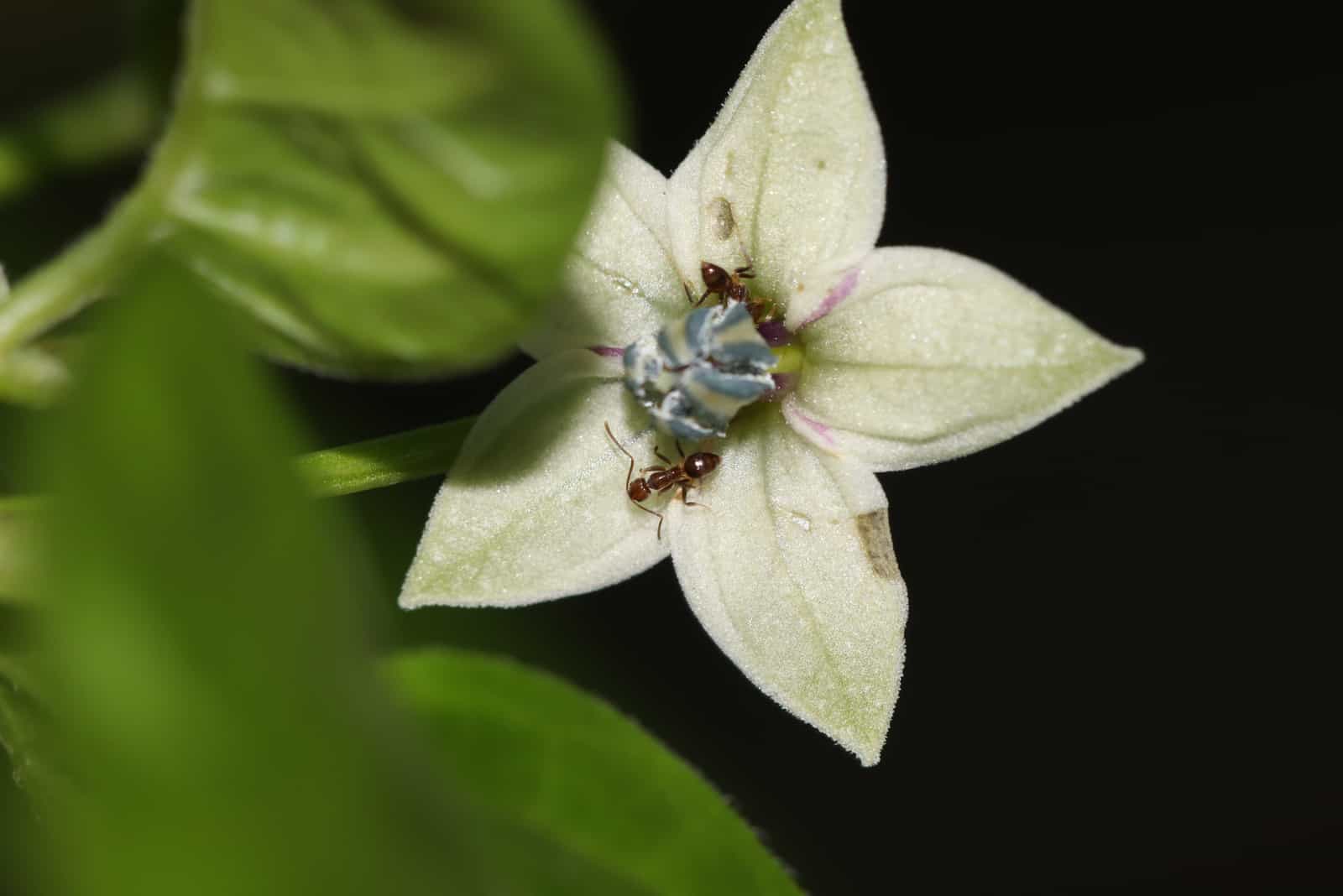
Ants are probably one of the most numerous insects in the world!
I swear they are literally everywhere during spring and summer. There are over 10,000 different types of ants , and some of them are common visitors in your house and/or vegetable garden.
Ants don’t exactly feed on your pepper plant, though they might steal some sap from the stem every now and then, but their primary goal is not eating your pepper plant . However, there is a type of ant called a leafcutter that steals some of the leaves and carries them to their nest.
They will focus on parts of leaves with fungus because they use them to feed their tiny ant larvae . Don’t worry about ants stealing your peppers, they can only do that when the pepper falls to the ground!
When you think about it, ants are beneficial insects because they remove the infected parts of your plant. There are also a few other reasons ants are considered to be beneficial insects to your garden, and we will get to that later.
When you notice ants for the first time , you should immediately inspect the plant for pest infestation . If you see a large ant population on your pepper plants it’s a real red flag — they are attracted to your plants because of a severe aphid infestation !
What Is The Connection Between Ants And Aphids?
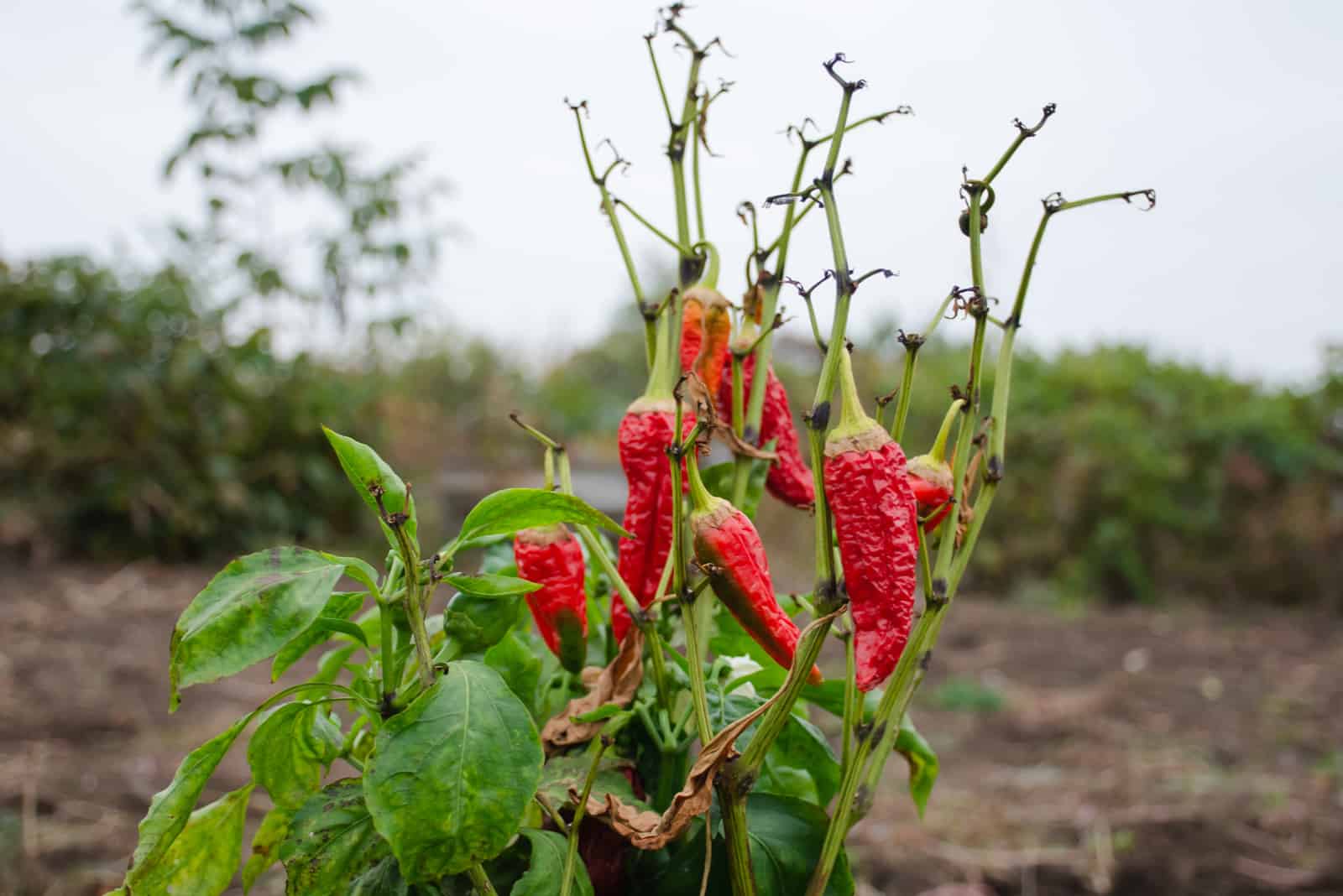
You should get antsy when you see ants all over your pepper plants because their presence usually indicates an aphid infestation . But why does this happen?
Well, when aphids get comfortable hiding on your plant and stealing its delicious nutrients, they will start producing a sticky substance called honeydew, which ants absolutely love feeding on. This is why they are all over your plant leaves and stems.
Aphids are not visible to the naked eye, so ants are usually a telltale sign that these small insects are hiding under your plant leaves .
Ants and aphids have a symbiotic relationship from which they both benefit — ants keep the farm aphid safe and sound, while ants use their product as a food source !
Therefore, if you’ve got an ant problem you most probably have aphid problems too.
Most ant species have a symbiotic relationship with aphids, however, the common ones that you will see on your pepper plants are black ants . Sometimes these little ants can help aphids survive the winter by carrying their eggs to a safe and warm place.
If you don’t have ants on your pepper plants , but are suspicious of aphids infestation , here are some signs that you can look for:
• Yellow leaves
• Curly leaves
• Stunted growth
• Wilting
• Leggy seedlings
• Discoloration
How To Get Rid Of Ants From Pepper Plants
You will definitely want to get rid of the ants at some point, especially if there is a whole colony. You don’t want the ants to end up being a secret ingredient in your pepper sauce!
There are a few ways you can get rid of ants naturally, and you can also use insecticide or some other form of pest control.
Now, let’s dive in!
Use Cayenne Peppers
The best way to get rid of these little annoyances without actually harming the pepper plant is by using their own superpowers!
In case you didn’t know, Cayenne peppers are one of the spiciest peppers in the world according to the Scoville rating, and they can be used as a natural pest control .
All you have to do is to use 10 Cayenne peppers by crushing them in a container and adding 2 tablespoons of dish soap . After that, add 250ml of lukewarm water, mix it all together, and pour it into a spray bottle .
Spray this all over your pepper plant and the soapy water will help to get rid of ants and our spicy secret ingredient will repel other annoying pests such as aphid species .
I would recommend you use this mixture in the evening as it can be overwhelming for the plant if you apply it on a hot summer day.
You can also check out this video for more information:
Go With Essential Oils
Neem oil is the first option when it comes to natural pest repellent. As well as neem oil , lavender and peppermint oils are commonly used.
This is because their strong odor repels these little insects, and they often dry out and lose the waxing they use for protection.
All you have to do is mix a few drops of oil with water and spray it all over the plant. I would recommend you use it on just one plant and wait for a few days to see if there are any changes, because in some cases the oil is not diluted enough and could potentially burn your plant.
Try Vinegar
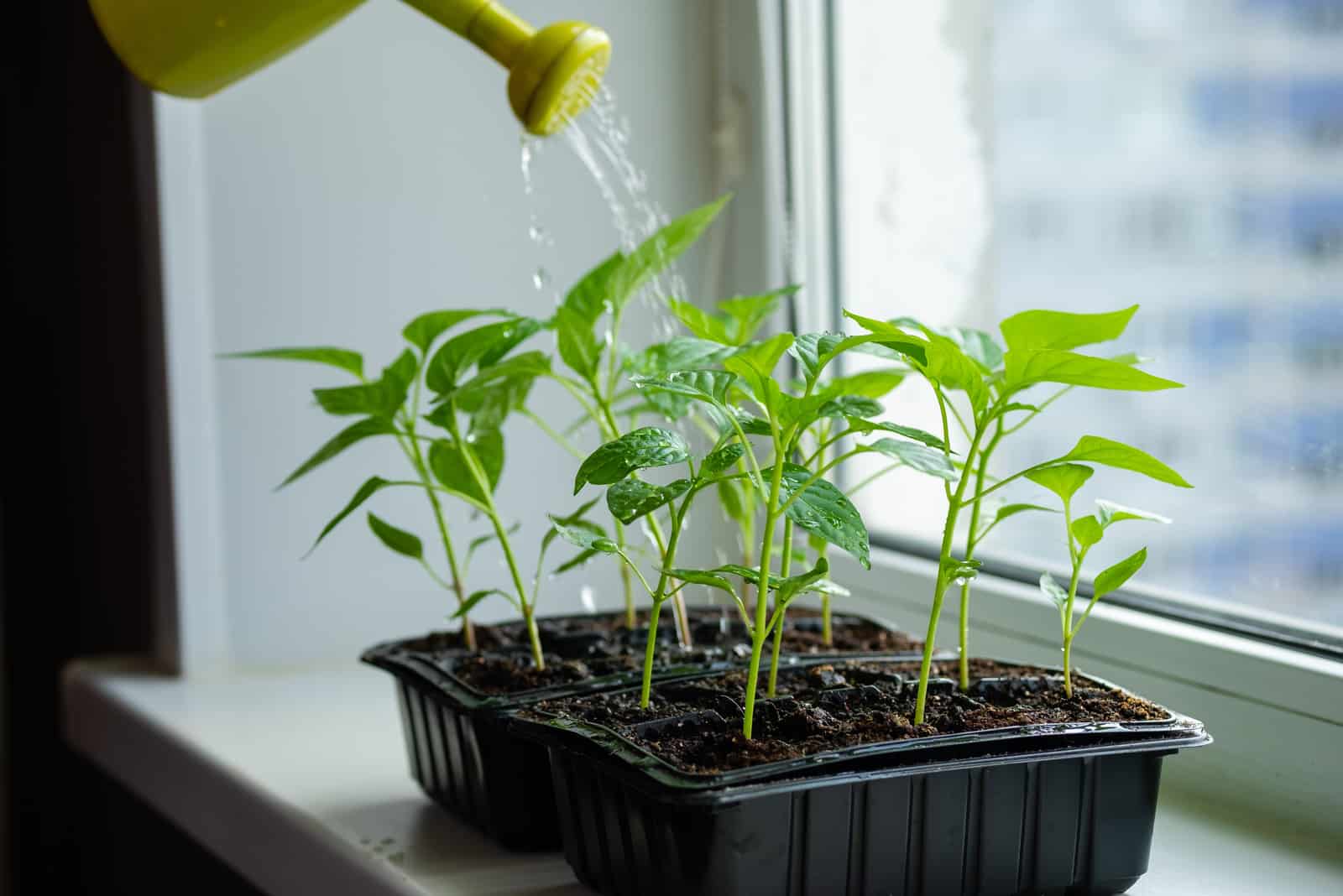
Vinegar also works well, and the strong odor can distract these little creatures by making them hard to follow each other, which breaks the colony apart. You can use both apple and white vinegar.
It is important that you mix equal amounts of water and vinegar together and spray it on both the leaves and around the plant!
Bear in mind that this is only a temporary solution, and you will have to reapply it consistently.
Organic repellents
There are also a few other organic methods that you can use to get rid of ants:
• Use high water pressure from a hose to wash the ants off of your plants (be careful not to harm your plants)
• Use cinnamon or other spices with a strong odor to distract the ants
• Put vaseline all over your plant, which will prevent the ants or any other pests from climbing on it
• Put orange or lemon peel around the base of your plant because they also have an unpleasant odor for ants, and as they decompose they can send the ants in a different direction (this worked great with my tomato plants )
• In addition to cinnamon, you can also use coffee grounds or ground pepper
• Mix borax with sugar or honey. You can place this mixture somewhere in your garden or even close to the ant hill . This method works in the best interests of both of you: the ants will feed on it and you will have ant-free plants!
Non-organic Options
Of course, you can always choose non-organic options.
These include insecticides , pesticides , plant food, and insecticidal soap … with new products every day, it seems like an ongoing list!
Growers almost always choose a non-organic option, especially because nowadays the products have significantly improved and cause no harm to the plants.
I usually go with insecticidal soap. I mix it with water, spray it on the plant, and the ants are gone in a matter of days.
However, diatomaceous earth plant food has become quite popular because it is cost-effective and does the job really well!
How To Get Rid Of Aphids
Most methods in the previous section apply here as well, and here are some of our top choices:
• Try companion planting — many plants will attract beneficial insects and pollinators that feed on aphids , mealybugs , mites , and similar pests. When you have plants prone to aphids , it is always a smart choice to place them next to ones that attract aphid predators (such as ladybugs )
• Use cayenne peppers — it is important that you use something spicy, it will not work with sweet peppers, for instance. The recipe is the same, just make sure that you apply it in the evening
• Essential oils are a great options as well — especially neem oil
• Pesticides and insecticidal soap are the most efficient
• Borax is a no-go — in most cases, this method works only on ants as they feed on powdered sugar or honey
• You can also apply diatomaceous earth plant food, which can get rid of slugs as well!
Ants In Your Garden: Benefits & Drawbacks
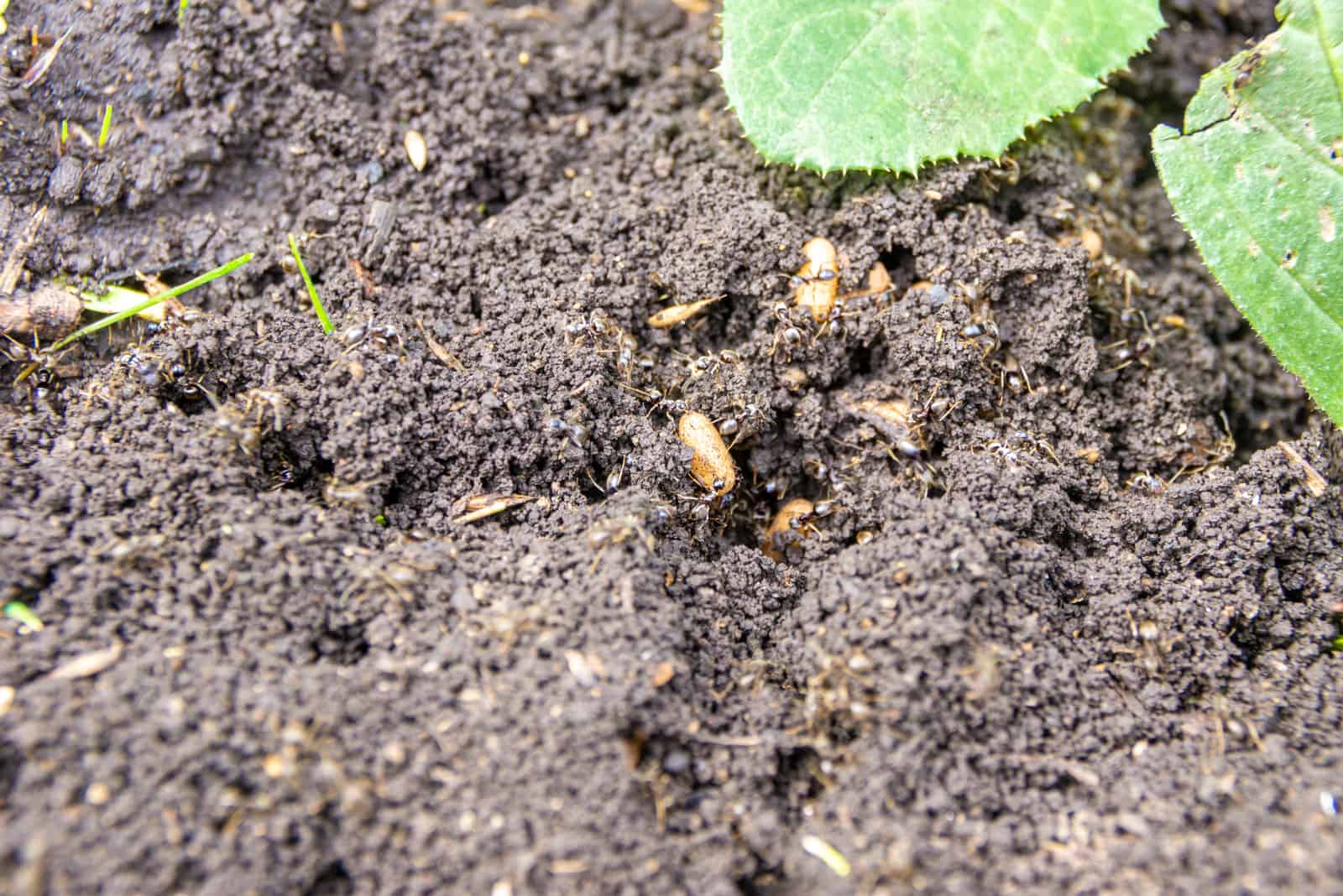
Though it might seem like having ants all over your plants is not a good sign, these little critters work like double agents. There are also numerous benefits that ants carry on their back!
However, there are still some drawbacks, so read on to find out everything you need to know!
Benefits Of Having Ants In Your Garden
Let’s look at why having ants in your garden isn’t always bad, and how they can improve your garden’s ecosystem .
Free Pest Control
If we exclude their symbiotic relationship with aphids , we can say that ants act like predators to many pests and small insects that tend to invade plants.
In fact, ants eat their small eggs and larvae , which prevents the pests from hatching and infecting your plants in the first place.
Some gardeners introduce ants to the gardens on purpose as they can act as free pest control !
Improve Soil Fertility
As ants dig through the soil, they can have a beneficial effect on its fertility. For instance, their tunnels can also allow oxygen to travel and reach plant roots ,so they are able to aerate the soil.
These little holes can improve water absorption and fertilization.
As well as this, ants can sometimes bring seeds to the soil that sprout and grow, thus they are also capable of seed dispersion!
Contribute To Pollination
Even though they are not pollinating insects, they can occasionally pollinate flowers without even knowing it!
Ants usually travel from flower to flower and pick up pollen unintentionally, thereby pollinating the plants.
This is important when the population of pollinators is low, so gardeners often introduce ants to their gardens to improve the pollination rate.
Drawbacks Of Having Ants In Your Garden
As we already mentioned, ants can make a comfy home for aphids — attracting other pests is a major drawback.
Sadly, there are some other drawbacks that might change your mind about introducing ants to your garden.
They Bite!
We have probably all experienced this: you are laying on the grass and suddenly feel a sting on your arm, and the pain and burning sensations can last for days!
In this case, you have probably been bitten by a fire ant . These types of ants tend to bite and release toxins that burn (in small amounts though) — they are not called fire ants for no reason!
Another type of ants that can bite you is carpenter ants. These are even more annoying and painful as they release formic acid directly into the wound.
When you think about it, it isn’t that scary to get bitten by ants, but imagine when you have to harvest plants and fruits covered with ants — that is definitely not a fun experience!
Another issue with carpenter ants is that they live in wood. They are also not picky, and can live in decaying wood in your garden or enter your house and find some quality wood in there!
A Large Colony Can Damage Young Plants
The ants will not directly damage your young plants, however, they will damage everything around them!
A large colony can make a lot of holes in the soil, which can expose plant roots that are not yet established to quick water evaporation. This is a bad thing because these plants need to stay hydrated.
As well as this, too many ants in the soil can accidentally cut your plant’s roots , especially when they are not yet established and still developing. If the plant is still young, then introducing ants into your garden might not be such a good idea at that moment as you may reduce the plant’s survival rate.
Frequently Asked Questions

1. Are ants attracted to pepper plants?
They are not attracted to pepper plants per se, rather they are more interested in the sweet honeydew that is produced by aphids on pepper plants .
Therefore, if you see ants on your pepper plants it probably means that you are dealing with an aphid infestation , and the ants are protecting them!
If you see a couple of ants casually walking over your plant, this is completely normal and you shouldn’t worry about pests. However, if you see lots of ants on your plants, then immediately examine them and look for aphids .
2. Do ants harm vegetable plants?
You don’t have to worry about ants eating your plant — they are usually interested in something more sweet and juicy!
In some cases, ants do eat some parts of your plant, but it is usually mildew or another type of fungi so they are kind of doing you a favor.
However, they can harm vegetable plants when they are young and lots of ants in the soil can create too many holes, so water will evaporate more quickly than usual. This means that your plant will not be able to absorb the water it needs for growth and development.
Sometimes these little creatures can also harm the plant’s roots , especially when they are young and not yet established.
We definitely shouldn’t forget about the symbiotic relationship between ants and aphids — they act as aphids ’ security!
3. What can I do about ants in my pepper plants?
There are many ways that you can get rid of ants on your pepper plants . You can choose between an organic option by using natural repellents, or a non-organic option with insecticides .
Some of the options include:
• Use cayenne peppers
• Try essential oils ( neem oil is the best!)
• Vinegar can also do the trick
• Leave lime or orange peels to decompose
• Add cinnamon, coffee grounds, or ground pepper
• Put vaseline all over your plant
• Wash off ants with high-pressure water
• Use insecticidal soap
• Diatomaceous earth works great
4. Can ants pollinate plants?
Surprisingly, yes!
Although they are not pollinating insects, sometimes they accidentally carry pollen as they are constantly traveling from flower to flower looking for food. They are pollinating the plants without even knowing it.
Sometimes gardeners introduce ants into their garden on purpose, especially when the population of pollinating insects is extremely low.
Final Word
Once you see lots of ants on pepper plants , immediately think about their symbiotic relationship with aphids !
Bear in mind that ants protect aphids because the aphids produce that sweet honeydew that ants absolutely love eating.
Therefore, you should find a way to get rid of ants and aphids if you want to have some peppers to eat at the end of the growing season!
You can always choose an organic option to get rid of these annoyances — in most cases, applying neem oil works wonders. However, you can also use insecticidal soap or some other type of pesticide to treat them.
Whichever option you choose, I hope it works!
Until next time!
Like this post? Share or pin it for later!
